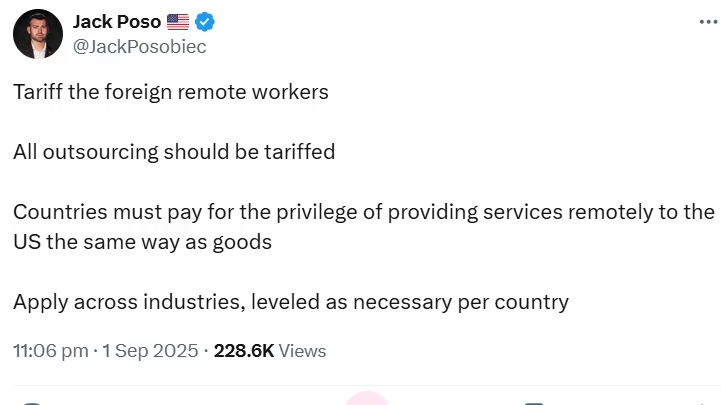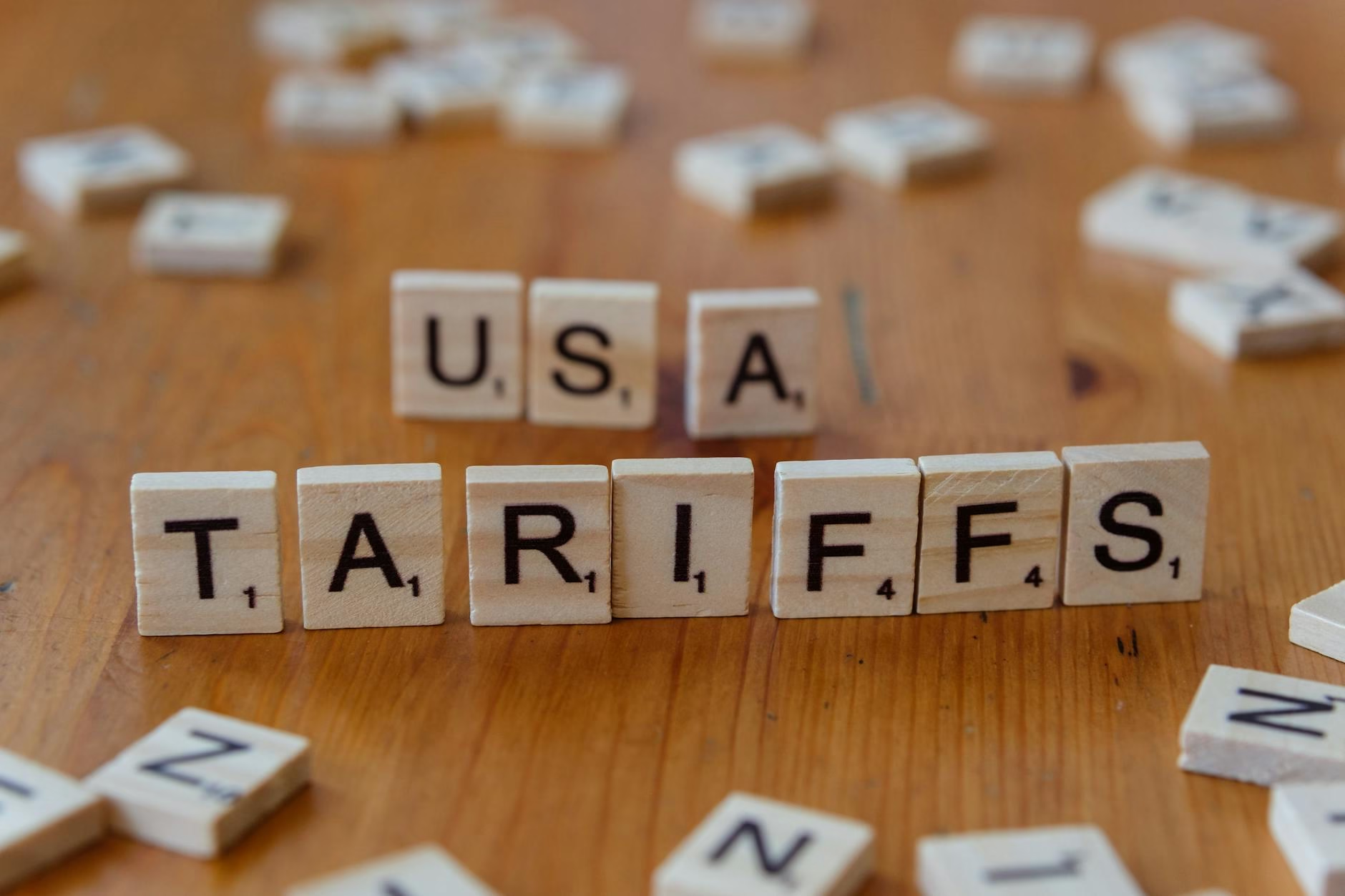Tariff News and The Indirect Impacts
The Article discusses trade issues between the US and India. These issues are worsening the situation, especially in the IT outsourcing sector. President Donald Trump is apparently thinking about stopping IT outsourcing from India to the US. He is considering significantly taxing it. This is based on advice from his advisors and far-right activists.
Trump has placed a 50% tariff on Indian imports. This is part of a larger trade war. The action is a retribution for India’s acquisition of Russian energy. The war has also brought back attention to the H1B visa program. This program lets Indian IT workers work in the US.
Some conservatives say that outsourcing work to other countries and working from home are taking employment away from Americans. They want tariffs or limits on these practices. The Indian IT sector is increasingly worried. Trump’s proposals to levy tariffs on foreign remote workers or maybe ban outsourcing altogether are causing concern.
This is because the economy is already having problems, and AI automation is on the increase. There are problems between the two countries. Trump reportedly still holds personal goodwill towards Indian Prime Minister Narendra Modi. This shows how complicated the US-India strategic relationship is.
Highlights
- The 50% tax on Indian goods was a punishment for India’s imports of Russian oil.
- The US is looking more closely at H1B visas, which affects Indian computer workers.
- Conservative campaigners want tariffs on foreign remote workers to keep American jobs The Latest on Tariff News.
- It’s still not clear if the US would tax remote employment or stop outsourcing altogether.
- The Indian IT sector is facing even more challenges because of trade tensions and AI automation.
- Even though there are problems, Trump’s personal relationship with Modi is still good.
Table of Contents
Important Point
The IT Sector is Affected by the Trade War-Context To Latest Tariff News:
The 50% duty on Indian goods shows how political disagreements can directly effect trade between two countries. Right now, IT outsourcing is a big issue. This illustrates the vulnerability of service industries. These industries, especially those relying on international collaboration, are more susceptible to political disagreements.
Such disagreements once only affected commodities. Tariffs or prohibitions on outsourcing in the IT sector will disrupt global supply chains. They will also raise costs for US businesses that depend on Indian services.
The H1B Visa Program as a Political Flashpoint
The H1B visa program lets Indian tech workers work in the US. It has been a topic of disagreement for a long time. Critics say that Indian workers are “stealing American jobs,” which has made the H1B argument even more heated.
This politicization shows how complicated the relationship is between immigration policy, protecting jobs in the US, and foreign trade. Changes to H1B rules or limits will significantly impact the US IT job market. They also alter the way Indian IT companies conduct their business.
New Frontier: Tariffs News on Services and Remote Work
The idea of taxing foreign remote workers breaks with the usual rules of trade. Tariffs have always been used on products. Applying them to services is a new way to do things. This is especially true for services offered online. This will start a worldwide discussion. The focus will be on regulating digital services, remote work, and evaluating the economic worth of cross-border digital labour. This will lead to more protectionist measures around the world.

How Non-Government Actors Affect Policy
Laura Loomer and other far-right activists don’t work for the government. Nonetheless, they have had an impact on the conversation over trade and outsourcing policy. This illustrates the influence of social media stars and political activists. They can sway public opinion and even alter policy direction, especially when there is division among people. The development of these kinds of influencers shows how political lobbying and policymaking are evolving in the digital era.
AI Automation and Economic Uncertainty Make Risks Worse:
The Indian IT sector was dealing with existing problems even before trade tensions rose. These problems were caused by the global economy being unstable. Additionally, the growing use of AI-based automation was a concern.
These things make people less interested in typical outsourcing services. This change would force corporations to come up with new ideas. They might also offer more services. The possible additional trade restrictions make things even more complicated. These restrictions might speed up changes in the structure of the industry. They could change the way people work in both India and the US.
The US-India Strategic Relationship is Complicated: US-India Tariff News vis-à-vis other ties
Tariffs and trade conflicts have put pressure on their relationship. Even so, President Trump and Prime Minister Narendra Modi are still on good terms. This shows how complicated US-India relations are, with both economic disagreements and strategic collaboration on security and geopolitical issues. Trade policy could grow more protectionist. However, broader diplomatic and strategic ties may continue to develop on their own.
Possible Effects on US Businesses and Consumers after the US-India Tariff News on Trade war
The US may impose tariffs on or ban outsourcing to India. As a result, American IT companies may have to pay more to run their businesses. They won’t be able to hire as many Indian workers who are cheaper.
This could make technological services more expensive and slow down innovation. Also, US companies that depend significantly on Indian IT outsourcing may need to change how they do business.
This means moving employment back to the US but at a higher cost. This could hurt their ability to compete. It might also raise costs for customers.
Conclusion-US-India Tariff News
The Article shows how trade conflicts and protectionist policies are moving beyond physical products to include digital services and labour. This means big changes for global trade, the tech industry, and international relations.
Discover more from NewsBusters
Subscribe to get the latest posts sent to your email.

3 thoughts on “US-India Tariff News: The Impact on IT Outsourcing, H1B Visas, and Remote Work”